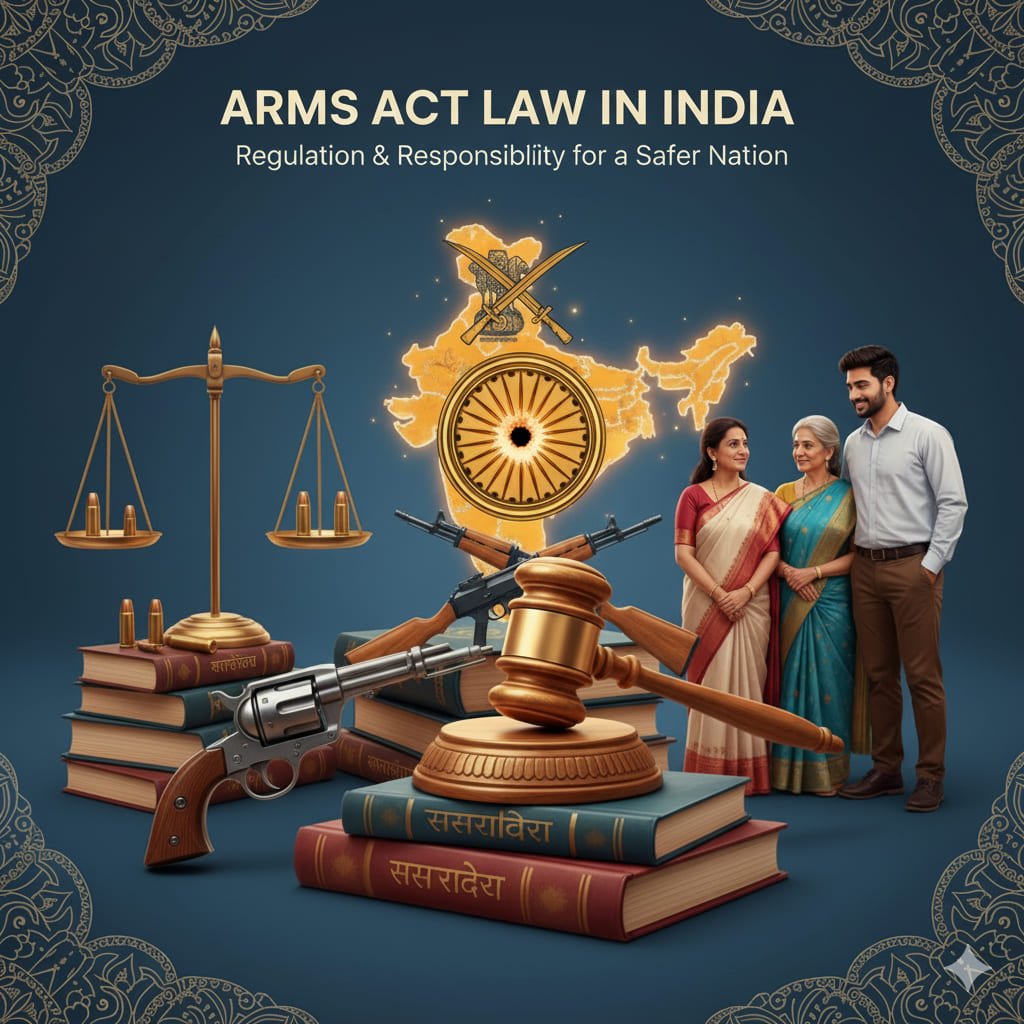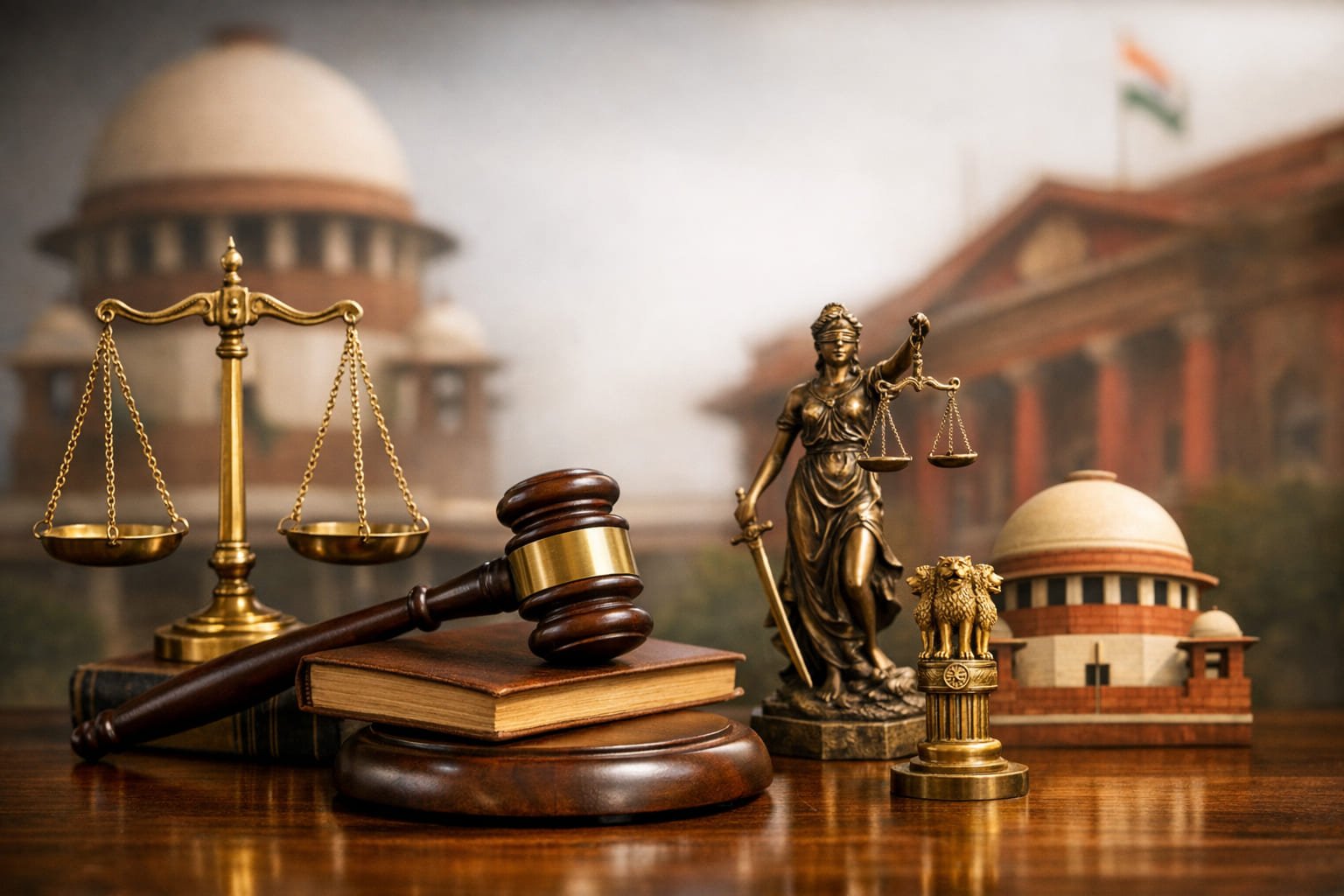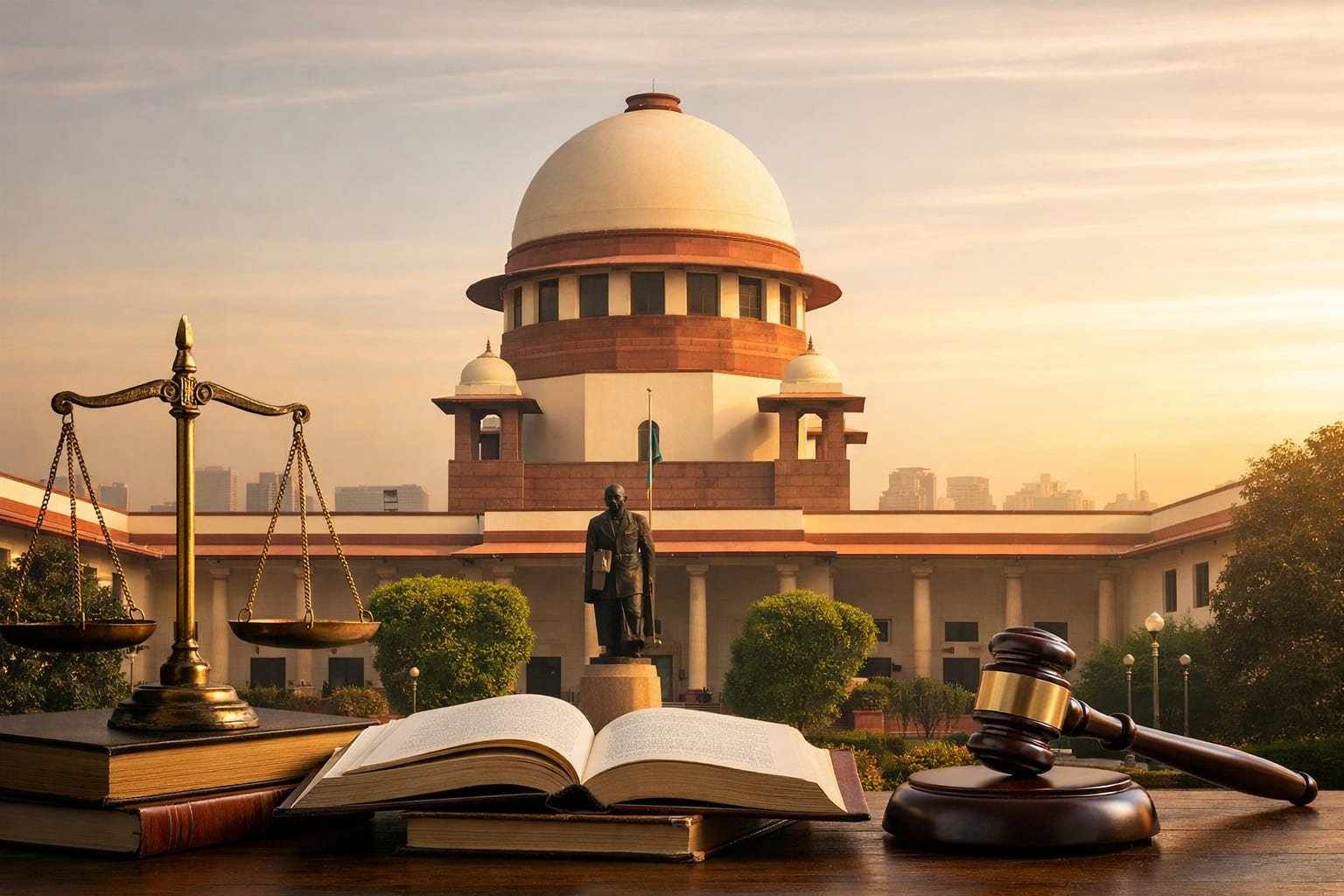In a country as diverse as India, the regulation of firearms and ammunition has always been a matter of national security, public safety, and responsible ownership. The Arms Act, 1959, stands as a cornerstone legislation that governs the possession, manufacture, sale, and use of arms and ammunition across the country.
While the Act ensures that firearms are kept out of the hands of those who may misuse them, it also safeguards the rights of law-abiding citizens to own arms under legal conditions. However, violations of the Arms Act carry severe criminal consequences, including imprisonment and loss of fundamental rights.
At Patrons Legal, our expert criminal defense lawyers in Delhi specialize in defending individuals and businesses accused under the Arms Act. With over 45 years of experience and a legacy of excellence in criminal litigation, we provide robust legal representation before all major courts, including the Supreme Court of India, Delhi High Court, and trial courts across Delhi NCR.
What is the Arms Act 1959?
The Arms Act 1959 was enacted to consolidate and amend the laws relating to arms and ammunition in India. It replaced the outdated Indian Arms Act of 1878, which was introduced during British rule and primarily aimed at disarming Indian citizens.
Post-independence, the need arose for a more balanced law — one that would protect the security of the state while allowing responsible ownership. The Arms Act, 1959, along with the Arms Rules, 2016, governs every aspect of firearms regulation, from licensing to penalties.
Objectives of the Arms Act
The key objectives of the Arms Act, 1959, include:
-
Regulating the acquisition, possession, manufacture, sale, and transfer of arms and ammunition.
-
Preventing the proliferation of illegal and unlicensed firearms.
-
Ensuring public safety and law and order.
-
Balancing citizens’ rights with national security concerns.
-
Providing a framework for lawful self-defense.
Key Provisions of the Arms Act, 1959
The Arms Act contains several important sections that define offenses, licensing procedures, and punishments. Below are the major provisions:
1. Section 3 – License for Acquisition and Possession
No person can acquire, possess, or carry any firearm or ammunition unless they hold a valid arms license issued under the Act. Licenses are granted only after thorough police verification and background checks.
2. Section 4 – Manufacture, Sale, and Transfer
Manufacturing, selling, or transferring firearms without a valid license is strictly prohibited.
This section ensures that only authorized dealers and manufacturers operate in the arms industry.
3. Section 5 – Prohibition on Import and Export
The import, export, or transport of arms and ammunition across Indian borders requires prior government permission. Violation attracts severe penalties.
4. Section 7 – Prohibited Arms and Ammunition
Certain weapons, such as automatic firearms or military-grade ammunition, are prohibited arms under the Act. Possession or trade of these without government sanction is a grave offense.
5. Section 13 – Licensing Authority
Licenses are issued by designated authorities — usually the District Magistrate or Commissioner of Police. The licensing process considers the applicant’s purpose, background, and security requirements.
6. Section 17 – Suspension or Revocation of License
Licenses can be suspended or revoked if the holder violates the law, misuses the weapon, or poses a threat to public safety.
7. Section 19 – Punishment for Possession of Unlicensed Arms
Possession of an unlicensed firearm is a serious criminal offense, punishable with imprisonment ranging from 3 to 7 years, along with a fine.
8. Section 25 – Penalties for Offenses
This is the most significant section of the Act. It outlines punishments for a range of offenses, including:
-
Manufacturing or selling arms without a license
-
Illegal possession of prohibited weapons
-
Altering firearm identification marks
-
Punishments can extend up to life imprisonment depending on the severity.
9. Section 27 – Use of Firearms in Commission of Offenses
If a firearm is used in committing a crime, the punishment is a minimum of 7 years’ imprisonment, which may extend to life or even death if it results in homicide.
10. Section 30 – Punishment for Contravention of License Conditions
Even a licensed gun owner can face penalties if they misuse their weapon or fail to comply with license conditions.
Licensing Procedure Under the Arms Act
Obtaining an arms license in India is a detailed and regulated process to ensure responsible ownership.
-
Application: Apply for the purpose — self-defense, sports, security, etc.
-
Police Verification: Background check to assess criminal record, mental health, and intent.
-
Scrutiny by Licensing Authority: Evaluation by the District Magistrate or relevant official.
-
Grant of License: Issued for a specified category and duration.
-
Renewal & Record Maintenance: Periodic renewal and compliance checks required.
Offenses Under the Arms Act
The Arms Act identifies several actions as criminal offenses, such as:
-
Possessing arms without a valid license
-
Carrying a weapon in public places
-
Manufacturing or dealing without authorization
-
Importing or exporting arms without permission
-
Altering or tampering with weapon markings
-
Using firearms for unlawful purposes
These offenses are cognizable and non-bailable, meaning police can arrest without a warrant, and bail depends on judicial discretion.
Penalties Under the Arms Act
Penalties vary depending on the severity of the offense:
| Offence | Punishment |
|---|---|
| Possession of unlicensed arms | 3–7 years imprisonment + fine |
| Manufacture/sale without a license | Up to life imprisonment |
| Possession of prohibited arms | 7 years to life imprisonment |
| Using a firearm during an offense | 7 years to the death penalty |
| Violating licence conditions | Up to 6 months imprisonment or a fine |
| Failure to report loss/theft of weapon | Up to 1 month imprisonment or a fine |
Bail in Arms Act Cases
Arms Act offenses are treated with gravity under Indian criminal law. However, bail can be granted in certain situations depending on:
-
The nature of the weapon (licensed, unlicensed, or prohibited).
-
Whether the accused has prior criminal antecedents.
-
The circumstances of recovery (personal possession vs planted evidence).
-
Intent to misuse or actual use of a weapon in a crime.
At Patrons Legal, our seasoned bail lawyers in Delhi prepare meticulous bail applications, highlighting inconsistencies in prosecution evidence and ensuring the accused’s constitutional rights are upheld.
Landmark Judgments Related to the Arms Act
-
State of Uttar Pradesh vs. Deoman Upadhyaya (1960)
The Supreme Court clarified that possession must be “conscious and voluntary” to constitute an offense. -
Om Prakash vs. State of Haryana (2010)
The Court held that recovery of a firearm without proof of intention to use may warrant leniency. -
Mohd. Usman vs. State of Maharashtra (1981)
It was ruled that technical lapses in seizure procedure can invalidate prosecution claims.
Such judgments underline the importance of expert legal counsel in defending Arms Act cases.
The Role of Criminal Defense Lawyers in Arms Act Cases
Facing charges under the Arms Act can have serious personal and professional implications. From arrest to trial, an accused person needs skilled legal guidance to challenge procedural lapses and assert their rights.
Criminal defense lawyers play a vital role in:
-
Challenging illegal seizures and defective search procedures.
-
Ensuring compliance with Section 100 CrPC (Search and Seizure).
-
Contesting ballistic or forensic evidence.
-
Filing anticipatory or regular bail.
-
Representing clients during trial and appeal.
At Patrons Legal, our criminal lawyers have extensive experience in defending Arms Act, NDPS, and IPC offenses before the Delhi High Court and subordinate courts. We combine technical knowledge with strategic advocacy to achieve the best possible outcome.
How Patrons Legal Can Help
At Patrons Legal, we understand that being accused under the Arms Act can be distressing. Our legal team provides comprehensive representation that covers every stage — from investigation to trial and appeal.
Our Expertise Includes:
-
Pre-arrest and anticipatory bail in Arms Act offenses.
-
Defense in trials involving illegal arms possession.
-
Quashing of FIRs under Section 482 CrPC.
-
Appeals and revisions before higher courts.
-
Strategic cross-examination and evidence analysis.
With more than four decades of practice, Patrons Legal has successfully defended clients in complex criminal cases involving arms, narcotics, financial crimes, and serious offenses. Our lawyers are recognized for their professionalism, confidentiality, and results-driven approach.
Preventive Measures and Legal Compliance
For individuals and security firms handling firearms, following legal protocols is essential:
-
Always obtain a valid license before acquiring a weapon.
-
Renew licenses periodically and maintain safe storage.
-
Report loss, theft, or misuse of weapons immediately.
-
Never modify or alter a firearm’s serial number.
-
Avoid carrying weapons in public gatherings or restricted zones.
Conclusion
The Arms Act 1959 plays a crucial role in maintaining law and order while ensuring the safety of citizens and the responsible use of firearms. Understanding its provisions is not only important for compliance but also for protecting one’s rights when faced with an accusation.
If you or someone you know is facing charges under the Arms Act, it is essential to seek professional legal assistance. At Patrons Legal, we combine decades of criminal law expertise with a client-centric approach to ensure every case receives thorough attention and the strongest possible defense. Contact us today to schedule a consultation with our top criminal defense lawyers in Delhi.








Leave a Reply